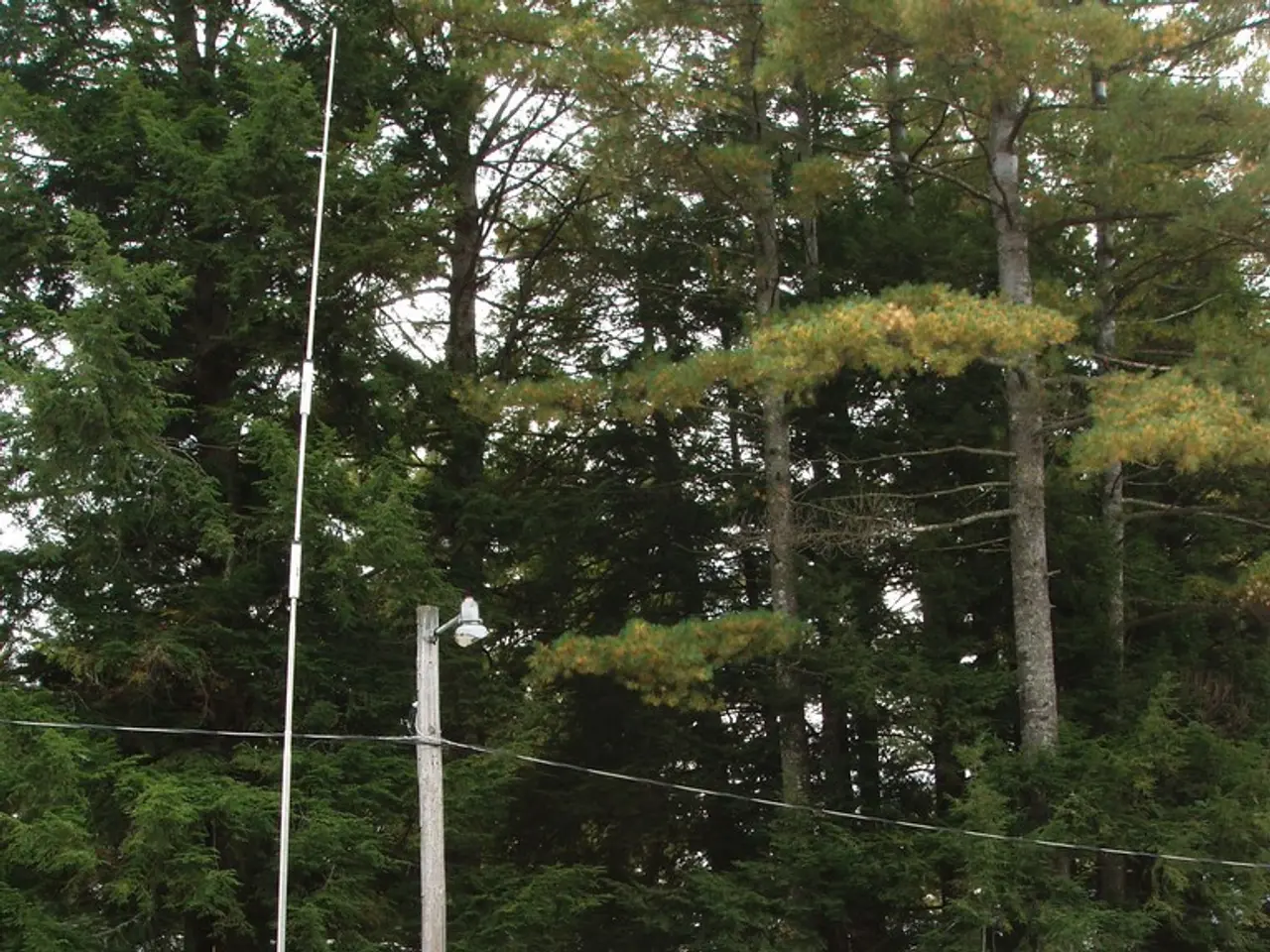Exploring Independently: A Guide for Going Off the Grid
Off-Grid Caravanning: Balancing Gas and Electricity for Comfortable Adventures
Off-grid caravanning offers a unique opportunity to escape the hustle and bustle of everyday life and immerse oneself in the beauty of nature. However, to ensure a comfortable and enjoyable experience, it's crucial to manage both gas and electricity effectively.
When it comes to gas, there are two types: butane and propane. Butane vaporizes at temperatures down to minus 2°C, while propane vaporizes as low as minus 42°C. For off-grid outings, investing in a self-refill system like Safefill or Gaslow can help ensure sufficient gas supply.
Electricity, on the other hand, is primarily generated through solar power. Photovoltaic panels, which generate current from all light, not just direct sunlight, can be fixed to the caravan roof or in portable metal frames. An ideal size for off-grid leisure batteries is 110Ah, and an AGM-type leisure battery is particularly efficient when used with a solar panel for topping up. A gentle trickle charge is better for leisure batteries than fast charging.
Lithium batteries, known for their power and lightweight nature, are perfect for off-gridding, but they are more expensive than standard batteries. It's essential to keep batteries properly charged through the off-season and when in storage. Use a smart charger where possible, or remove the battery from the caravan and store it in a well-ventilated room, checking its power levels periodically.
Off-gridding doesn't have to mean roughing it; gas can power the hob, oven, heating, and fridge, and battery power can light and run a TV. The National Caravan Council (NCC) has set up a Verified Leisure Battery Scheme to provide clear guidance on a battery's capacity.
Solar panels are useful for off-grid caravanning as they can keep leisure batteries charged. The angle of the solar panel affects its performance, and the optimal angle varies depending on location and time of year. It's recommended to buy solar panels from a recognized UK supplier for better power output, longevity, and aftercare.
To efficiently manage gas and electricity for off-grid caravanning, combine a well-sized solar power system with a suitable battery bank while using gas for heating and cooking needs. This hybrid approach balances renewable electricity generation with reliable gas energy use, allowing sustained off-grid caravanning with the comforts of modern appliances and safe, efficient resource management.
Remember, running out of gas or battery power during off-grid camping can negatively impact the trip. To avoid this, aim to fit a solar panel that is capable of keeping your system charged, typically a 100-200W set-up. Taking a large canister of drinking water is recommended for off-grid sites, especially for campsites that haven't been visited before.
Gas costs significantly less when filled up at LPG Autogas fuel stations compared to buying from Calor. When it comes to leisure batteries, a leisure battery has much thicker lead plates inside than those provided in a car battery.
In conclusion, with careful planning and the right equipment, off-grid caravanning can be an enjoyable and comfortable experience. By prioritizing energy conservation, investing in efficient appliances, and managing resources wisely, you can make the most of your off-grid adventures.
[1] For AC appliances, inverters may be needed. [2] Generators provide robust power but produce noise and emissions, so usage should be mindful of the environment and local regulations. [3] Every 1°C fall below 25°C results in a 1% decline in battery performance for leisure batteries. [4] To extend battery life, use energy-efficient appliances and limit consumption when off-grid.
- To enhance the off-grid caravanning experience, one can explore home-and-garden solutions by fixing solar panels to the caravan roof or using portable metal frames, which generate electricity for powering appliances like a TV or keeping leisure batteries charged.
- When planning for an off-grid travel journey, it's essential to consider the lifestyle aspects, such as the importance of balanced gas and electricity management for comfort, and the need for efficient appliances that can contribute to energy conservation and a more enjoyable experience.




